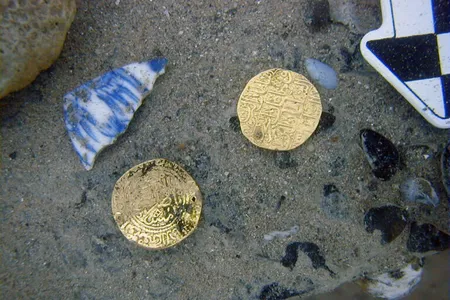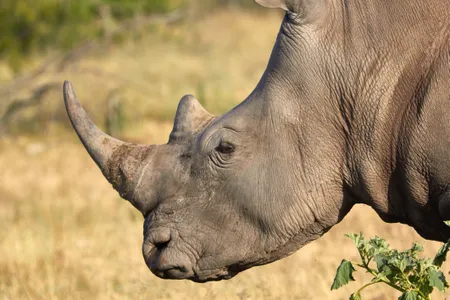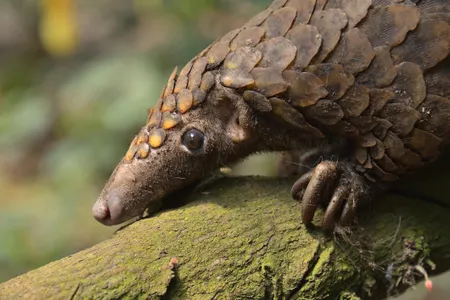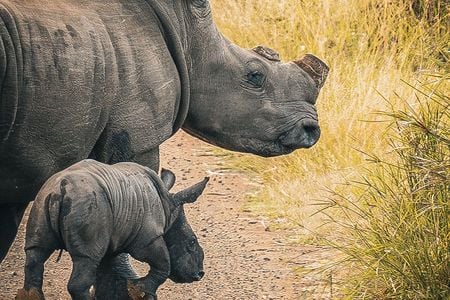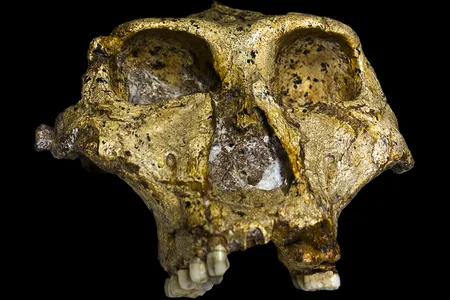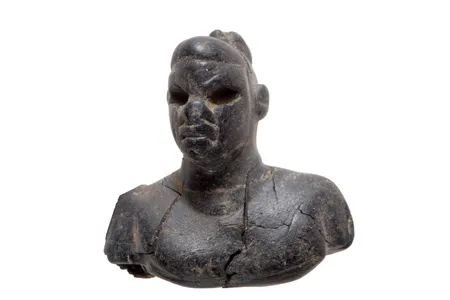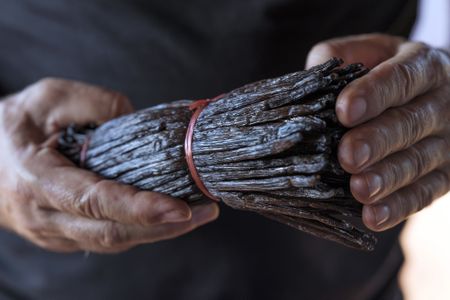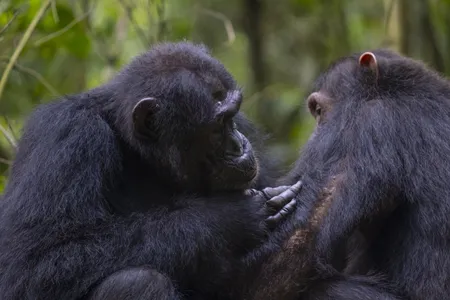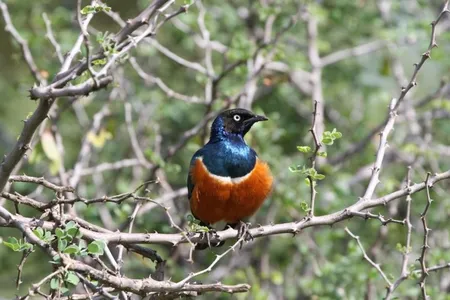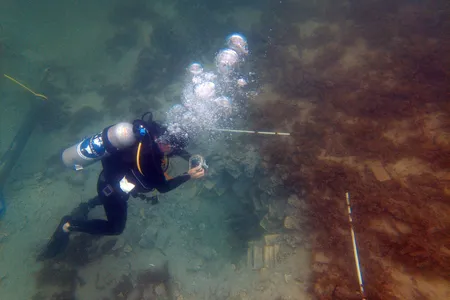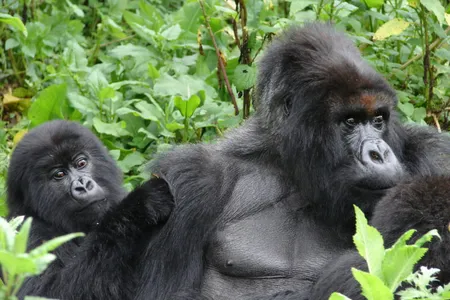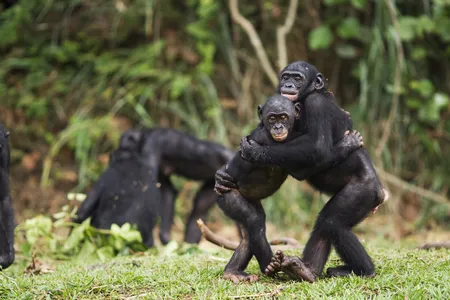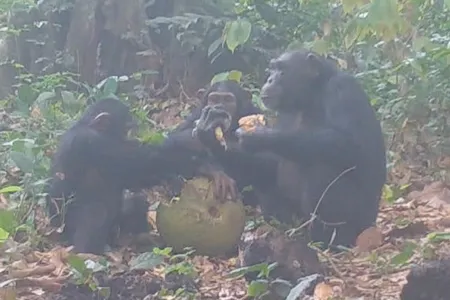Scientists Have Never Confirmed a Meteorite From Mercury. Could These Space Rocks From the Desert Be the First?
Two meteorites found in the Sahara show tantalizing similarities to the innermost planet, and while researchers say they are likely not direct samples, “one cannot rule out” the idea
Archaeologists Find 300-Year-Old Shipwreck in What Used to Be ‘One of the Baddest Pirate Lairs on Earth’
Pirates attacked the Portuguese warship, named the “Nossa Senhora do Cabo,” and made off with many of the treasures the ship was transporting from India to Portugal
Scientists Recover Ancient Proteins From Animal Teeth Up to 24 Million Years Old, Opening Doors to Learning About the Past
Two new papers analyze fossils found in Canada and Kenya, respectively—vastly different environments for the preservation of genetic material
The World’s ‘Most Trafficked Mammal’ Might Soon Be Protected by the U.S. Endangered Species Act
The Fish and Wildlife Service has proposed listing seven species of pangolin, often poached for their scales and meat, as endangered
Dehorning Rhinos Curbs Poaching, New Study Finds
Researchers in South Africa find that cutting the animals’ horns reduces poaching by almost 80 percent
A Giant Cloud of Saharan Dust Is Heading to the Southeastern U.S. Here’s What That Means
The plume of dust has already blown over the Caribbean and is expected to reach Florida later this week
Scientists Investigate 2.2-Million-Year-Old Tooth Enamel to Unravel the Mysteries of Ancient Human Relatives
By studying proteins preserved in teeth, researchers determined the sex of four Paranthropus robustus individuals that lived in southern Africa
Archaeologists Unearth Two Rare African Figurines in 1,500-Year-Old Christian Burials in Israel
The artifacts were buried in the graves of a young woman and child, who may have converted to Christianity in Africa before traveling to the region, researchers say
The Bittersweet Beginnings of Vanilla Cultivation Can Be Traced Back to the Far-Flung Isle of Réunion
A journey to the remote Indian Ocean island reveals the story behind the fragrant, delicious, ubiquitous spice—and the enslaved youth who made it a commercial success
Chimpanzees Perform First Aid on Each Other, Study Finds, and It May Shed Light on the Evolution of Human Health Care
Researchers describe cases of chimps tending to others’ wounds, as well as a chimp that freed another from a snare
Researchers Discover That Chimps Drum Rhythmically, Suggesting Human Musicality Originated in Our Last Common Ancestor
Not only do chimpanzees maintain a rhythm while drumming on tree roots, but two subspecies use distinct tempos and techniques, according to a new study
These Colorful Birds Form Long-Term ‘Friendships’ by Helping Out With Babysitting, Study Suggests
While scientists have observed animals assisting their relatives, a new study reveals that many superb starlings also form supportive relationships with non-relatives that can last for years
Locals Thought These Shipwrecks Had Belonged to Pirates. They Turned Out to Be 300-Year-Old Danish Slave Ships
The two vessels had been trafficking hundreds of enslaved Africans when a navigational error led them astray. They sank off the coast of Costa Rica in the 18th century
For Mountain Gorillas, Being Social Comes With Both Benefits and Drawbacks, Study Suggests
A new analysis of wild gorillas in Rwanda indicates the effects of different social styles are dependent on context
Official Paintings From Charles III’s World Tours Are Going on Public Display for the First Time
Over 40 years, artists have accompanied Charles on his travels to 95 countries with only one directive: Paint whatever interests them
Smithsonian Photo Contest Galleries
These Extraordinary Archaeological Sites Are a Portal to Ancient Egypt
The Valley of the Kings and other bucket-list Egyptian destinations offer a glimpse into millennia-old majesty and artistry
Carthaginians, Ancient Rome’s Infamous Enemies, Are Not Exactly Who Scholars Thought They Were, Ancestry Study Suggests
DNA reveals that the people of Carthage, a powerful independent colony founded by the Phoenicians, had little genetic similarity to their counterparts in the Levant
Female Bonobos Assert Their Dominance Over Males by Banding Together, New Study Suggests
Bonobos, which are among our closest living relatives, live in rare societies where females tend to outrank males, even though males are larger and stronger. Scientists compiled decades of observations to explain why
Watch Wild Chimpanzees Share Alcoholic Fruit, a Behavior Just Captured on Video for the First Time
Though the reason behind this action is unclear, researchers suggest socially consuming alcohol may have offered evolutionary benefits to a common ancestor of both humans and chimps
See 26 Captivating Images From the World Press Photo Contest
In stark black-and-white and stunning color, this year’s winning photographs capture global events on a human scale
Page 1 of 17

